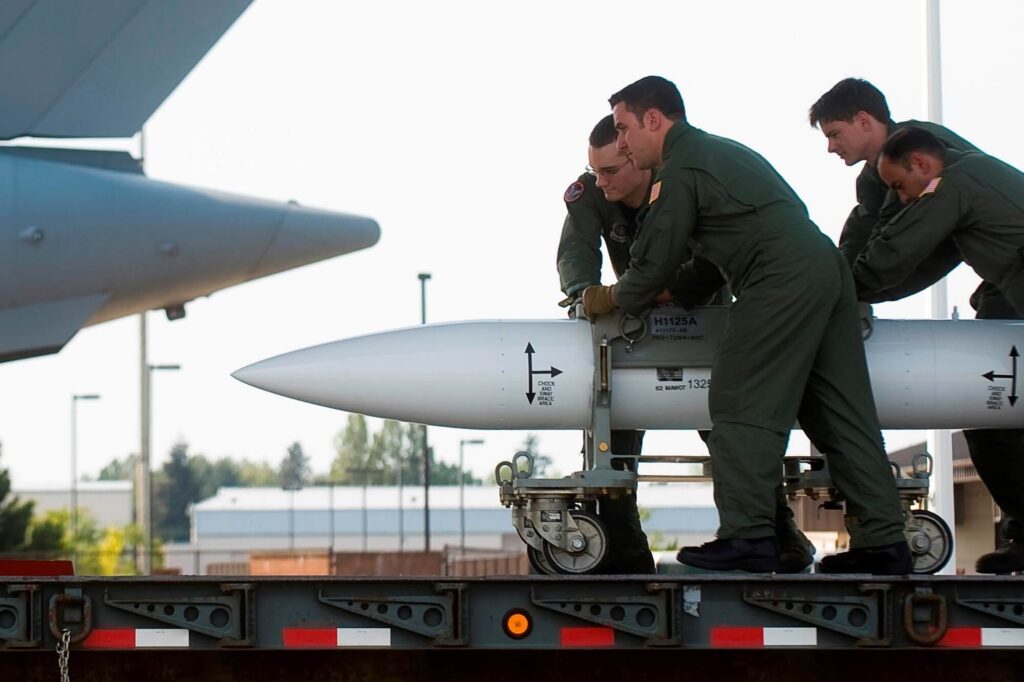Finland and Sweden are not ruling out the possibility of housing nuclear bombs as part of the NATO nuclear sharing arrangement once they become members of the alliance.
The two Scandinavian countries, which both applied for accelerated accession to NATO in the aftermath of the invasion of Ukraine by Russia, are currently awaiting the approval of Turkey and Hungary.
While the two governments are currently discussing the conditions of their acceptance, they said they were both ready to consider deploying nuclear weapons on their soil once they join the Alliance.
“I’ve considered it very important that we don’t set these kinds of preconditions, or limit our own room for maneuvering, when it comes to permanent bases or nuclear weapons,” Finnish Prime Minister Sanna Marin told local TV channel Yle on October 29, 2022.
Marin reiterated her position on November 1, 2022, during a press briefing with her Swedish counterpart, Ulf Kristersson, who said Sweden shared the same stance.
“We’ll go hand-in-hand, also in this sense, with Finland,” Kristersson said. “And of course, we acknowledge the fact that we embrace all of NATO’s capabilities.”
What is NATO nuclear sharing?
The arrangements, known as NATO nuclear sharing, were negotiated secretly during the Cold War and were meant for a quicker response to any nuclear threat coming from the Soviet Union.
Hundreds of US B61 nuclear gravity bombs are stored in several bases across Europe, namely in Belgium, Germany, Italy, Netherlands, and in Turkey. Participating member states must maintain a combat aircraft able to operate the B61s stockpiled on their soil.
Finland is in the process of acquiring the Lockheed Martin F-35A fifth-generation fighter jet. The aircraft is currently undergoing certification by the United States Air Force to use the B61. It completed the final flight test in October 2021.
As for Swedish Air Force, the backbone of its fighter fleet relies on the homegrown JAS 39 Gripen manufactured by Saab. If it is to join the sharing agreement, Sweden must either acquire a B61-capable aircraft or offer the Gripen to certification. The latter would take from three to five years.

